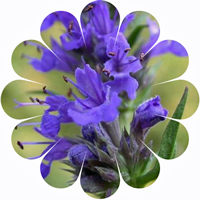Vaginitis
Reproductive System
The mucous lining in the vagina is sensitive to internal imbalances and hormonal changes. Irritants range from perfumed pads to Candida fungi. Irritation causes the mucous membranes to swell and become red, inflamed and itchy. If you have an infection where there is a large amount of discharge it is important that you see a medical practitioner before attempting self-treatment as this could be a symptom that there is something more seriously wrong. Also, your sexual partners should be seen by a practitioner and all sexual activity should stop until the infection has cleared up.
Essential Oils
 Essential Oils for Vaginal Infections:
Essential Oils for Vaginal Infections:
Recommended Oils: cinnamon, juniper, hyssop, lavender, rosemary, sage, clary-sage, red thyme, origanum, tea tree, eucalyptus, cypress, niaouli
Essential Oils for Inflamed Vaginal Tissues:
Recommended Essential Oils: German chamomile, lavender, yarrow, tea tree, eucalyptus, angelica
Methods of Using Essential Oils:
It is important to keep in mind that undiluted essential oils can burn the delicate mucous membrane tissues and so they must be in a diluted form. There are various methods to treat these conditions. It is important to remember that when you are combining several essential oils, first you make up the blend, and then add the recommended number of drops taken from this concentrate, depending on the method you intend to use.
- Douches – a maximum of 8 drops; you can douche once a day for three days each week. Always add the oils to spring water that has been warmed.
- Sitz bath – a maximum of 8 drops; drop the formula into a teaspoonful of milk, then add to the bath water run to hip level. Sit for at least 15 minutes.
- Tampon Method – soak a tampon in mixture of essential oil and other ingredients. Place in vagina in the morning and remove at night.
- Creams – add formula to 120 ml vitamin E ointment or KY jelly.
- Massage oils – add formula in proportion to a total of 30 drops per 30ml any vegetable oil including soya, almond, sunflower, borage seed, evening primrose, jojoba. Massage into the abdomen and lower back.
- Glycerin – available from the pharmacy, glycerin makes essential oils less harmful to vaginal mucous membrane and lessens irritation. Add essential oils to glycerin before adding this mix to water.
Self Help
Self Help:
- For a Vaginal Douche to treat both yeast and Tricholmonas infections: A 10 percent solution of tea tree essential oil (about one and a half teaspoons to a cup of warm water)
Herbs:
For Candida – take 3 lactobacillus acidophilus a day – this re-introduces ‘good bacteria’ into the body system to return the vaginal lining into an acidic environment.
Garlic – a potent remedy which helps the body fight infections
Echinacea tincture – 10 – 15 drops in liquid two times a day for a couple of weeks to control the infection
Black walnut tea – fights fungal infections
Drink a cup of lemon water or rose hip tea two times a day for Vitamin C
Tea tree oil – add 10 drops to a warm bath and soak for 20 minutes
Gemstones
Gemstone for Healing:
Carry or wear
Reflexology
Reflexology areas to emphasize:
- Ovaries/uterus, fallopian tubes
- Groin lymphatic/lymphatic drain – to encourage/cleanse the body’s immune system
Causes
8 Causes Of Vaginitis
1. Vaginal Environment – the PH level of tissues, blood sugar level and the presence of organisms such as the yeast Candida albicans and the parasitic protozoa Trichomonas vaginalis.
2. Weakened Immune System – the body is not able to fight off many of the infectious diseases.
3. Bacterial Infection – sexually transmitted: Nisseria gonorrhea; non-sexually transmitted: Gardnerella vaginalis.
4. Candida (Yeast) Overgrowth (Vaginal Thrush) – if intestines are clogged ( ie/chronic constipation) and are not eliminating the excess yeast and other toxic organisms.
5. Parasites – Trichomonas vaginalis is commonly transmitted through sexual intercourse. These parasites grow best in an acidic PH climate (PH of 5.5 to 5.8)
6. Hormonal Imbalance – occurs more frequently in women who use birth control pills.
7. Diet and Nutritional Deficiencies – deficiencies in zinc and Vitamins A,C,E and B complex invite vaginitis.
- Zinc and Vitamin A are necessary for proper cell repair and the normal growth of tissues, including the vaginal mucosa.
- Zinc and Vitamin A,C and E all support the immune response
- Vitamin C strengthens connective tissue
- Vitamin E helps regulate hormones
- B Vitamins are needed for almost every metabolic function in the body
- Vitamin B1 and pantothenic acid enhance the action of estradiol (a form of estrogen)
8. Irritants And Foreign Objects – the vagina can become irritated or inflamed by tight pants or underwear. Vaginitis or inflammation can also be caused by a tampon being left in the vagina too long.

 Essential Oils for Vaginal Infections:
Essential Oils for Vaginal Infections:
